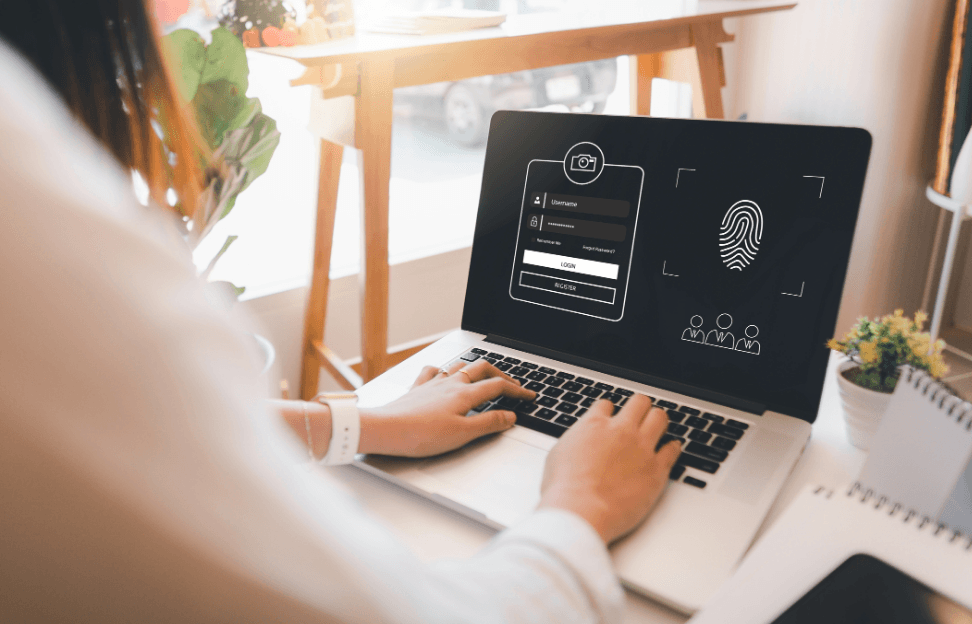- Cybrela
Security guidelines: How to protect yourself and company data while working from home
Working from home is great - you can be productive in the comfort of your own environment. However, it also brings the need to keep an eye on your online security. Unsecured networks, sharing sensitive information, or weak passwords can open the door to cyber threats. Fortunately, there are simple steps you can take to protect yourself and keep company data safe. Let’s look at practical tips to help you manage working from home securely and stay calm.
- Home and office: where WiFi connects automatically
It’s finally time to change that default password from your internet provider! Leave generic passwords in the past and set a strong, unique password that is harder to crack. Full sentences work great. And while we’re on the topic of security, don’t forget about using a VPN. A Virtual Private Network ensures a safer connection not only to the company network but also to the internet, providing better protection for your data against potential attacks.
- Time for updates...
Make sure your devices – from the operating system to antivirus and firewall – are regularly updated. While it may seem annoying, these updates contain important security patches that protect you from new threats. So even if you don’t feel like it, don’t put them off. Regular updates are a cornerstone of cybersecurity.
- Password 1234 is already taken
A password like "MyCompany2024" isn’t exactly impressive... For better protection, don’t forget to enable multi-factor authentication (MFA) on your accounts. And most importantly, avoid using simple passwords; instead, use full sentences that are easier to remember. Don’t write passwords on a sticky note next to your device. If you struggle to remember complex passwords, consider using a password manager. Just make sure it uses strong encryption and comes from a reputable company. This way, you can rest easy knowing all your passwords are secure.
- Don’t get caught by phishing
You’re not an easy fish to catch – you’re the real caviar! Keep this in mind when you receive a suspicious message trying to extract your personal or sensitive information. Be wary of messages that urge you to act quickly. And remember – do not open any attachments from untrusted sources.
- Cloudy to overcast
No matter what the weather is like outside, always keep in mind that backing up data is crucial! Store your work data in company cloud storage and avoid using personal flash drives, Dropbox, or personal Google Drive for storing work information. This way, you’ll keep your data organized while also protecting it from loss or leakage.
- Follow remote work guidelines and policies
These guidelines aren’t just formalities – they’re designed to make your work easier and ensure safety. By following them, you contribute to the safety of the entire company. You can usually find a condensed version of the policy on the intranet to help you navigate the rules better.
- Rock, paper, scissors
If you don’t have a shredder from the National Security Authority at hand, wait to dispose of documents until you’re back in the office. The same goes for printing. It’s better to keep unnecessary papers under control at work and dispose of them securely.
- What's up?
For messages you deem unimportant, use only company communication tools like Teams, Slack, Confluence, or any other platform your company uses to communicate with colleagues. Before sending a message, double-check the recipient addresses to ensure the information gets to the right people. Encrypt sensitive information in attachments and set a strong password for access. This way, you ensure that the data remains safe, even when sending it to colleagues.
- Ctrl + Alt + DEL
Never leave your mobile or computer unlocked when you step away from them! Don’t underestimate small children—they might decide to kickstart their programming career at any moment. Set an automatic lock on your devices to keep them protected and ready for a secure return.
- Lights, camera, action
When organizing an online meeting, use a secure company platform. Before using it, ensure that its software is updated to the latest version, has security features like password protection and encryption, and check the default settings. Use a VPN, strong password, and virtual background to protect your privacy, and make sure to send invitations only to meeting participants via company email or another secure messaging tool.
Utilize the "waiting room" feature to control who wants to join. During the meeting, you can also disable screen sharing to prevent the spread of unwanted or harmful content. Share sensitive information carefully and remind others to follow the same security measures during the meeting.
If you are attending an online meeting, be cautious about whether the meeting link comes from a trusted sender – beware of phishing!
- Don’t download that movie; it’s on Netflix anyway
Untrustworthy files, applications, and plugins definitely don’t belong on your computer. It’s like letting strangers into your home. Avoid unauthorized websites – they can jeopardize not just your devices but also your data.
- Reporting (quickly and promptly)
If you discover something is wrong, contact your IT department as soon as possible. They will likely appreciate your timely recognition of the problem! Quick response can mean the difference between a minor inconvenience and a serious security incident. Remember, help is within reach – don’t hesitate to seek it!
And finally, the last but perhaps most important rule: Working from home may not be a benefit if you don’t have a conducive work environment at home or if you struggle to maintain a balance between work and personal life. Set clear rules for working from home – not only from a cybersecurity perspective. Ensure you have a comfortable and productive workspace that helps you succeed without neglecting your personal needs.



